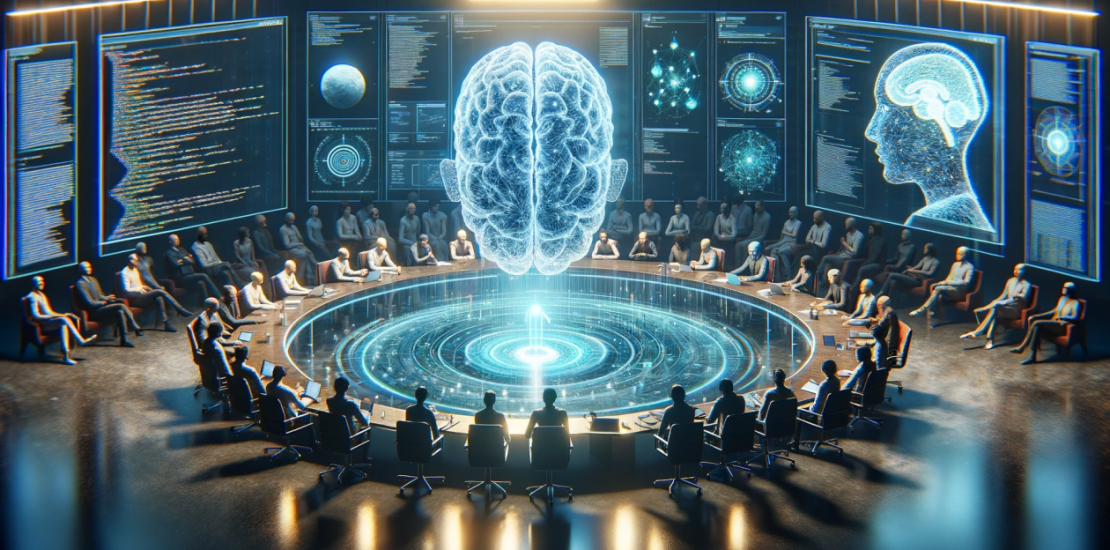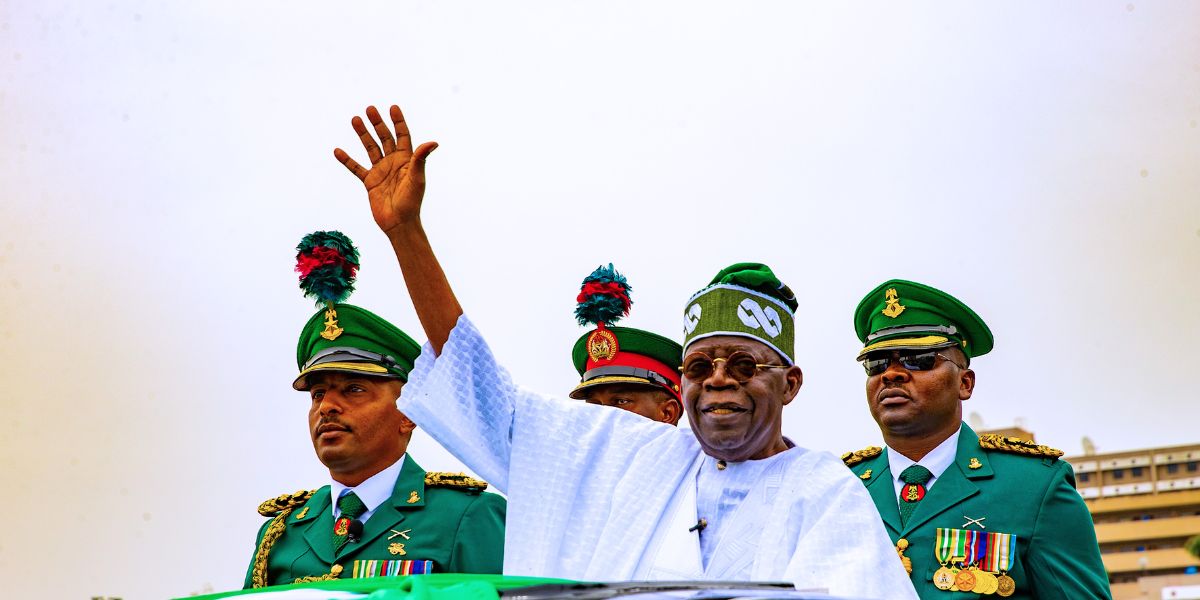International Day of Democracy 2024: A Case Study of Nigeria
- September 15, 2024
- Posted by: Hub Admin
- Categories: Democratic Governance, Elections, Latest News & Events

By Tine Bello
Ensuring Effective Governance of AI at All Levels
The International Day of Democracy, observed annually on September 15, offers nations a platform to celebrate, appreciate, and evaluate their democratic practices. This year’s theme, “Ensuring Effective Governance of AI at All Levels,” emphasises the growing role of artificial intelligence (AI) in shaping democratic governance. The theme calls for transparent implementation and effective governance of AI at all levels to ensure these tools promote inclusivity, fairness, and accountability, rather than deepening inequality or exclusion.
In the context of Nigeria, AI presents both opportunities and challenges for enhancing democracy. Since Nigeria’s return to civilian rule in 1999, the country has made significant democratic progress, such as the use of technology in elections. However, challenges like electoral violence, corruption, and political violence persist. Then imagine AI algorithms coming to the rescue and reducing electoral fraud, ensuring fair resource allocation, and improving political transparency by identifying real-time irregularities. True; AI could be a game-changer. As AI continues to evolve, the question of how to govern its use in Nigeria’s democratic processes becomes increasingly important. AI must be deployed in ways that support transparency, accountability, and public trust, ensuring that it serves as a tool for strengthening, not weakening, Nigeria’s democracy.
AI and the Evolution of Democratic Governance
The concept of democracy has evolved globally, influenced by both traditional ideals and modern technologies. Leaders like Barack Obama and Abraham Lincoln offered perspectives on the values of democracy, emphasising institutions, minority rights, freedom, and participation. Today, as AI takes on a larger role in governance, it is essential that these democratic principles are preserved. Effective governance of AI can help ensure that it supports Nigeria’s democratic institutions and enhances transparency, especially in areas such as electoral management, public accountability, and citizen engagement. While the theoretical values of democracy remain essential, the practical implementation of these values in Nigeria faces challenges. AI offers potential solutions, but only if it is effectively governed and regulated to prevent misuse, bias, or the concentration of power in the hands of a few elites. Let’s look at AI and its effect on some critical areas of our democracy:
Restricting the Military and Using AI in National Security. Nigeria’s successful transition to civilian governance and the restriction of the military to its professional role in defending the nation’s territorial integrity highlights a critical democratic achievement. However, AI is becoming increasingly important in national security. However, this also means keeping a close eye on how AI tools are used to avoid overreach or military interference in political affairs. This is a win for democracy, I must say. AI-driven surveillance and defence technologies must be governed effectively to protect civil liberties and ensure that democratic oversight is maintained over military operations.
Nigeria’s Role on the Global Democratic Stage and as a regional leader in West Africa extends beyond its borders. Its commitment to democracy has earned it a position in global organisations like ECOWAS, the African Union, and the United Nations. As the country navigates global trends in technology and data governance, it has the opportunity to lead in the ethical regulation of AI, ensuring that its use aligns with democratic values and protects citizens from undue surveillance, manipulation, or disenfranchisement.

Nigeria’s electoral process has seen technological innovations such as the Bimodal Voter Accreditation System (BVAS) and the electronic transmission of results. As AI systems become more integrated into electoral processes, the potential for greater transparency exists, but so do new risks. With AI, we can further boost the integrity of elections by detecting voter suppression, streamlining logistics, and reducing violence at polling stations. AI can analyse patterns of fraud, making elections more transparent. The 2023 elections showed that while technology has improved some aspects of the electoral process, public trust remains low. Effective governance of AI is key to restoring confidence in elections and reducing the influence of political elites who may seek to exploit these technologies for personal gain.
The issue of resource control has also been a persistent challenge in Nigeria’s democracy, fuelling political rivalry. AI will improve the transparency of resource allocation and distribution by providing data-driven insights that reduce human biases. However, without effective governance, AI could also be a weapon to entrench existing power imbalances by giving political elites new tools to manipulate access to resources. AI must be governed in ways that promote fairness and equality in resource distribution, ensuring that regional interests do not overshadow national unity.
AI presents opportunities for improving the inclusiveness of marginalised groups in governance, particularly women and persons living with disabilities (PWDs). AI systems can be used to analyse and address barriers to participation, create accessible platforms for engagement, and promote more inclusive policies. However, AI can also exacerbate existing biases if not governed effectively. Ensuring that AI is deployed in ways that promote inclusion is crucial to enhancing the representation of women and PWDs in Nigeria’s democratic processes.
Youth engagement in Nigerian politics has been a significant issue, young people of Nigeria have shown that they are not going to be sidelined. Movements like #EndSARS in 2020 and the #EndBADGOVERNANCE in 2024 are proof that the youths want a voice in governance. Imagine if AI tools could help them organise, advocate for policies effectively by creating platforms for digital activism, enabling data-driven advocacy, and improving access to political information. However, AI governance must ensure that these technologies are not used to suppress youth voices or limit their impact. Effective regulation of AI could empower Nigeria’s youth to take more active roles in shaping the country’s political future.
Civil liberties form the backbone of any democracy, but the rise of AI has introduced new concerns about privacy, freedom of expression, and government surveillance. In recent years, Nigeria has seen a shrinking of the civic space, with increasing government efforts to regulate digital platforms and stifle dissent. AI-powered surveillance technologies must be governed carefully to prevent abuses of power. The government’s response to the #EndSARS protests in 2020, and more recently to the #EndBADGOVERNANCE demonstrations in 2024, shows a hesitance to allow unrestricted civic activism. These actions highlight the need for stronger protections of civil liberties to ensure that democracy in Nigeria remains participatory and inclusive
As we celebrate this year’s International Day of Democracy, we should reflect not just on how far Nigeria’s democracy has come, but also on where it’s going. Embracing AI could be a big part of Nigeria’s future, but it will require careful, thoughtful governance to ensure it helps build a stronger, more inclusive democracy rather than weakening it. By investing in the right systems and policies, Nigeria can use AI to ensure electoral integrity, broaden citizen participation, and create a democracy that truly works for everyone. Effective governance of AI at all levels is critical to ensuring that these technologies support our democratic values.
Nigeria stands at a crossroads, where investments in AI must be matched by strong regulatory frameworks that promote inclusivity, transparency, and accountability. By embracing the potential of AI while ensuring its ethical use, Nigeria can strengthen its democratic institutions, empower under-represented groups, and ensure that the benefits of democracy and technology are shared by all its citizens.
